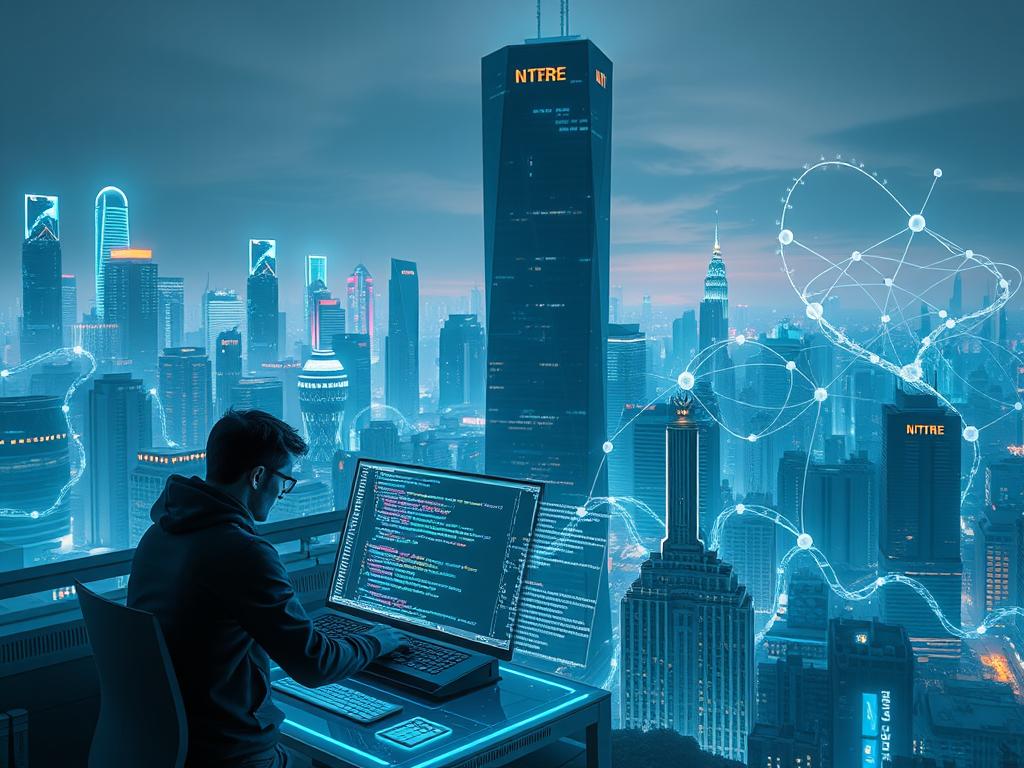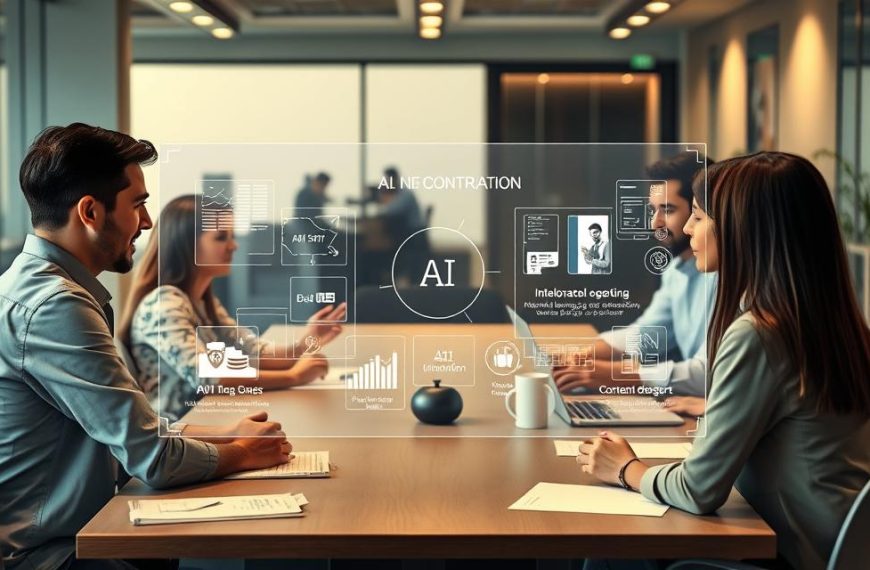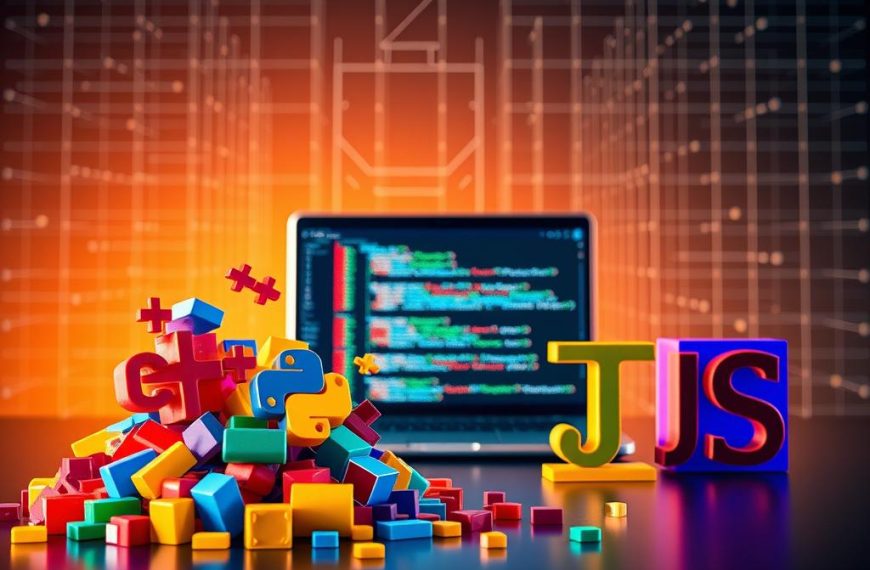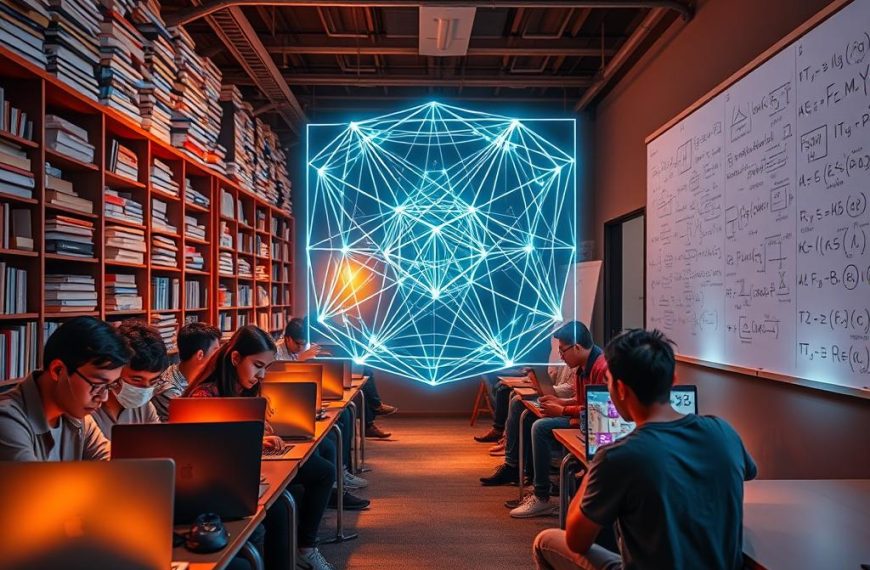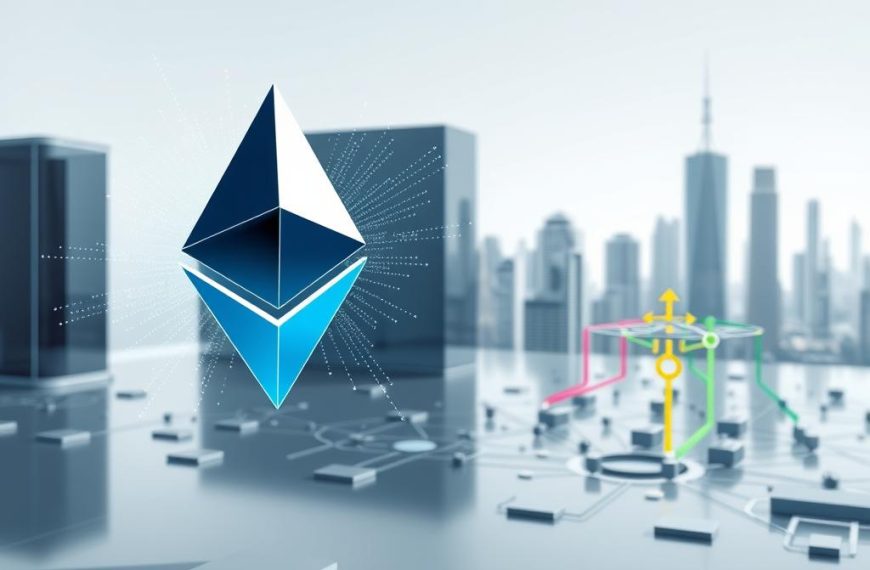AI is changing how developers code, causing both excitement and worry. A 2023 Stack Overflow survey found 44% of developers use AI tools. Another 26% plan to adopt them soon.
Generative AI tools are reshaping software development. ChatGPT and GitHub Copilot have become essential. 83% of developers use ChatGPT, while 56% use GitHub Copilot.
The future looks bright for coding jobs. McKinsey predicts 9 million new US jobs by 2030. Gartner believes AI will create more programming jobs than it replaces by 2025.
Coding jobs won’t vanish; they’ll evolve. Developers who embrace AI tools will lead in tech innovation. 80% of programming jobs will stay human-focused.
The key is to see AI as a powerful ally. Programmers who adapt and use AI will thrive in this new landscape.
Understanding the Current State of AI in Programming
Software development is changing rapidly with generative AI. These new tools are making coding more efficient and innovative. They’re reshaping how developers tackle complex challenges.
AI-powered development tools are changing the programming world. They offer powerful assistance to developers. This boosts productivity and creativity in software engineering.
Exploring Generative AI Capabilities
Generative AI is a game-changer in programming. It offers several key features:
- Automated code suggestion and completion
- Context-aware programming assistance
- Rapid prototype generation
- Intelligent debugging support
Evolution of AI Development Tools
AI-powered development tools have made remarkable progress. Platforms like GitHub Copilot and OpenAI’s Codex are leading the charge. They offer smart code recommendations, changing how developers work.
Current Limitations of AI in Coding
Despite impressive advances, generative AI still faces challenges. These include:
- Potential code “hallucinations”
- Intellectual property concerns
- Inconsistent output quality
- Dependency on training data
AI tools show great promise, but human expertise remains vital. Skilled programmers offer strategic insight and creative problem-solving. They provide nuanced understanding that AI can’t fully match.
Will AI Put Programmers Out of Business?
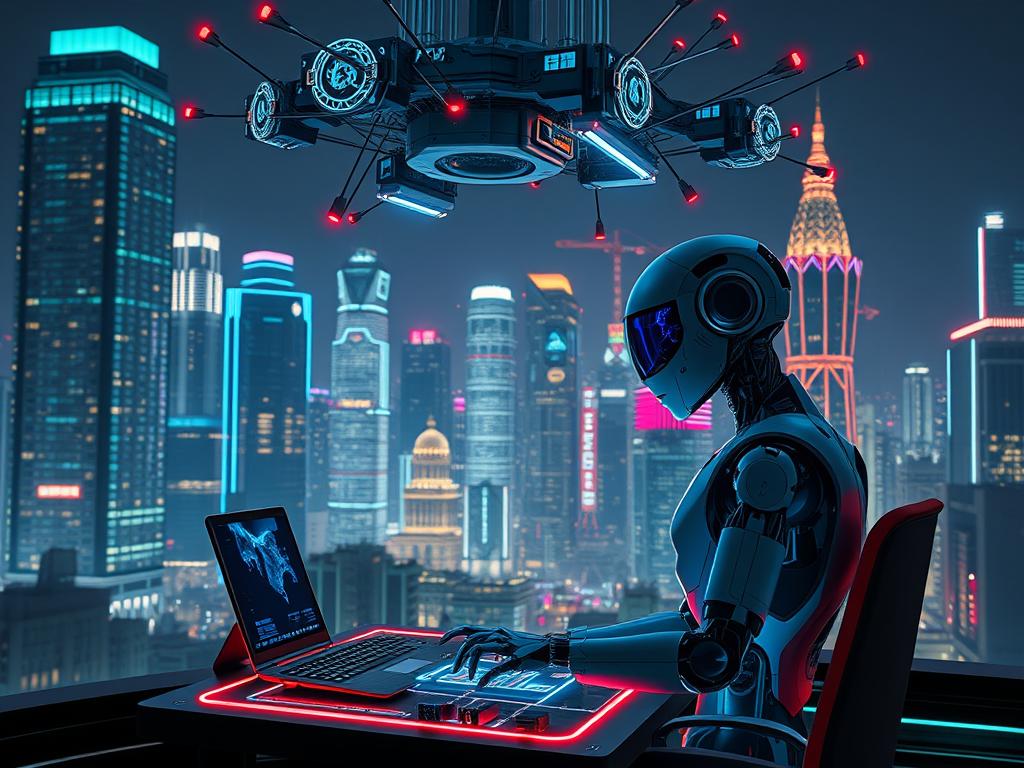
AI’s rapid progress has sparked concerns about the future of programming jobs. However, the reality is more complex than simple replacement. The future looks nuanced, with AI likely transforming rather than eliminating programming roles.
Historical data paints an interesting picture of technological evolution in programming. This trend suggests a different narrative about AI’s impact on the field.
- In 1950, only a few hundred developers existed globally
- By 1970, developers numbered around half a million
- Currently, approximately 28 million developers work worldwide
Coders’ job security has shown remarkable resilience over time. Each new technological advance has boosted efficiency without eliminating developer roles.
From assembly language to high-level programming languages, the field has evolved and expanded. This pattern suggests AI might follow a similar trajectory.
| Technological Milestone | Impact on Developer Jobs |
|---|---|
| Assembly Language (1947) | Increased productivity, maintained job demand |
| FORTRAN Language (1956) | Simplified coding, expanded developer opportunities |
| Modern AI Tools | Augmenting developer capabilities |
The programming profession is set for transformation, not replacement. AI will likely automate repetitive tasks in coding. This shift will push developers towards more strategic and creative problem-solving roles.
Technology doesn’t eliminate jobs; it reshapes them.
Developers who adapt to this change will thrive. Learning to work alongside AI tools will be crucial. This collaboration will shape the future of intelligent software development.
The Transformation of Programming Work in the AI Era
AI-assisted coding is reshaping how developers approach their craft. Programmers are shifting from traditional coding to strategic problem-solving. This change is driven by increasingly sophisticated artificial intelligence.
AI tools are streamlining code generation at an unprecedented rate. Developers using AI can complete 126% more projects per week. This statistic highlights the transformative potential of these technologies.
Streamlining Code Generation with AI
AI-powered tools like Copilot and ChatGPT are revolutionising code development by:
- Generating code snippets based on natural language descriptions
- Reducing manual coding time
- Identifying and fixing potential bugs automatically
- Providing intelligent code optimization suggestions
Evolving Programmer Roles
The emerging programmer role focuses less on writing every line of code. Instead, it emphasises strategic problem-solving in programming. Developers are becoming orchestrators who guide AI tools to achieve optimal results.
“Developers who excel at translating business needs into effective AI prompts will have a competitive advantage.”
New Responsibilities in an AI-Driven Landscape
| Traditional Role | Emerging Role |
|---|---|
| Manual Coding | AI Tool Management |
| Debugging | Strategic Problem Resolution |
| Repetitive Tasks | High-Level System Design |
The future of programming is collaborative. Human creativity and AI efficiency will work together. This partnership will drive unprecedented innovation in the field.
Essential Skills for Future-Proof Programming Careers
Adapting to AI in coding is crucial for future-proof programming skills. Continuous learning is key for career sustainability. AI tools are reshaping software development, becoming vital for daily tasks and problem-solving.
Technical expertise alone isn’t enough anymore. Programmers need a mix of deep technical knowledge and creative problem-solving abilities. AI can handle routine tasks, but human creativity remains irreplaceable.
The future needs programmers who can work with AI systems effectively. This means grasping AI’s strengths and weaknesses. It also involves using these tools efficiently and tackling complex challenges.
Continuous learning and adaptability are vital for success in AI-enhanced programming. Platforms like UC San Diego Extended Studies offer courses in Python, C#, and Java. These provide structured paths for professional growth.
By staying curious and committed to learning, programmers can turn tech changes into opportunities. This approach fosters growth and innovation in the ever-evolving field of programming.

